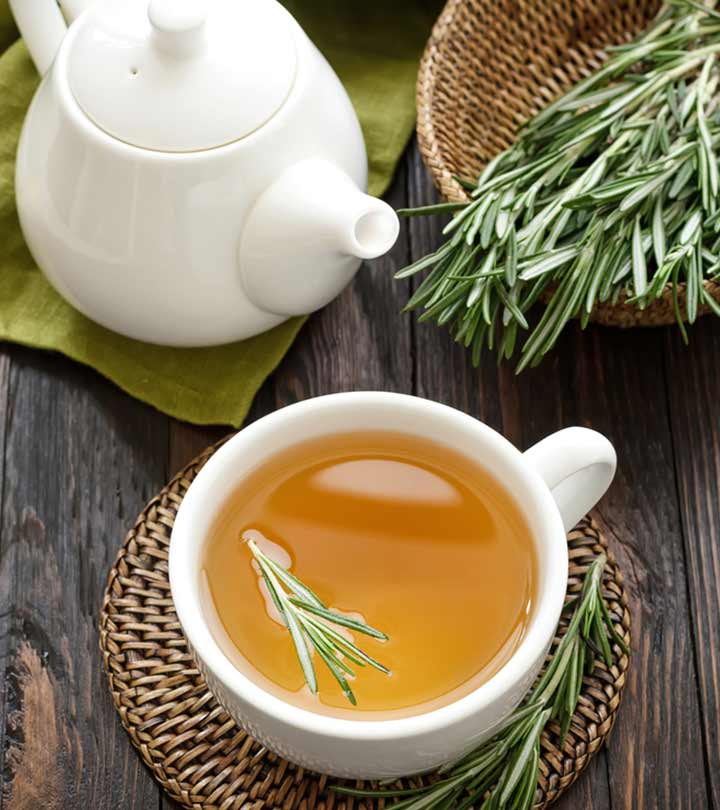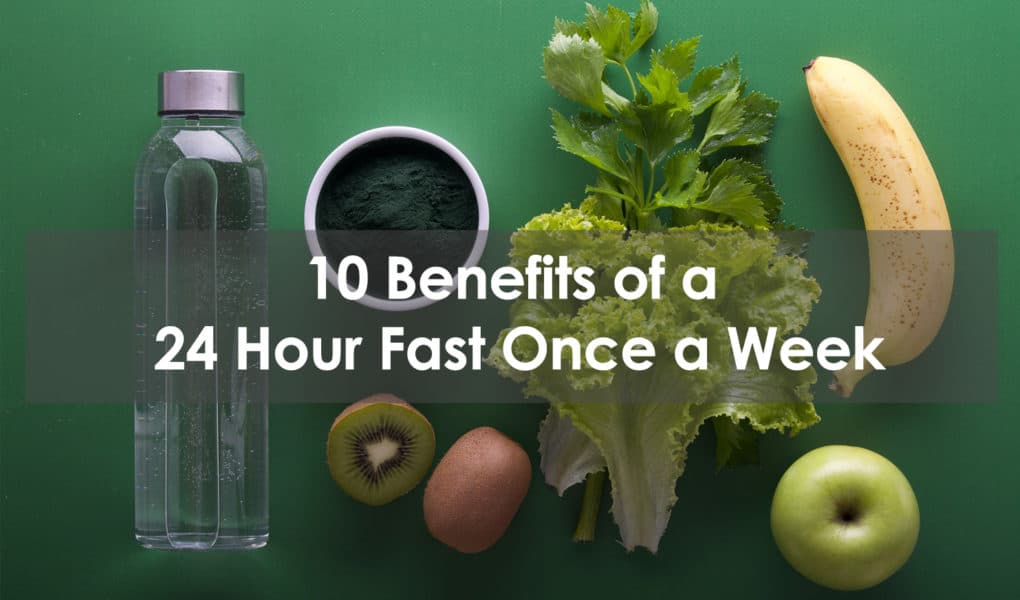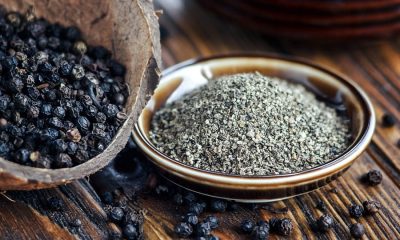Health
7 Benefits of potassium rich foods

Discover the 7 shocking health benefits of potassium rich foods.
There are many reasons why you should make sure to eat an adequate amount of potassium-rich foods daily, potassium is an essential nutrient used to maintain fluid and electrolyte balance in the body, it is also the third most abundant mineral in the body.
The body and a mineral required for the function of various organs, including the heart, kidneys, brain, and muscles; The benefits of potassium-rich foods also play an important role in keeping the body hydrated and works with sodium to support cellular function with your body’s sodium and potassium pump.
Low potassium symptoms, also known as hypokalemia, are highly undesirable and can include severe headaches, dehydration, heart palpitations, and swollen glands and tissues.
Potassium from natural food sources, such as the list of potassium-rich foods below, is considered very safe and very healthy, the current recommended dietary intake for male and female adults is 4,700 milligrams of potassium per day.
If that sounds like a lot, it’s because it is, and many people have trouble getting as much potassium as they should daily.
Using the table of foods rich in potassium that we are about to provide you, you can know what kinds of foods you need to eat regularly to meet your requirements and avoid a deficiency.
As an alkaline mineral and electrolyte, you don’t want to miss the mark when it comes to your potassium intake.
Benefits of foods rich in potassium
1.- Benefits of potassium rich foods for heart
One thing that makes a healthy heartbeat as it should, we are talking about your heart rate, and the benefits of potassium-rich foods play a direct role in ensuring that the rate is healthy and as it should be.
If you have problems with your heart rhythm, a potassium deficiency could play a role.
2.- Reduce cramps
One of the main benefits of foods rich in potassium is the reduction of muscle cramps and the improvement of muscle strength. Muscle weakness, muscle aches, and muscle cramps are common side effects of low potassium levels.
This can happen if an athlete becomes dehydrated and does not consume enough potassium-rich foods before and after exercise; Potassium is also helpful for cramps related to premenstrual syndrome (PMS).
3.- Reduce the risk of stroke
Several observational studies have found that those with high potassium levels experience a lower risk of stroke.
The risk of ischemic stroke, in particular, is lower in high-potassium consumers, the positive relationship between increased intake of the benefits of high-potassium foods and decreased risk of stroke is believed to come from sources rather than supplements, which do not seem to provide the same positive effect.
4.- Benefits of potassium rich foods for high blood pressure
According to a recently updated publication from Harvard Medical School, “the average American diet produces too much sodium and too little potassium,” which is highly counterproductive when it comes to discouraging high blood pressure; Studies show that a diet high in potassium, especially potassium from fruits and vegetables, lowers blood pressure.
This is especially true if the increase in potassium foods is not accompanied by an increase in foods high in sodium; One group that you shouldn’t aim too high for with potassium intake is people with kidney problems.
5.- Low appearance of cellulite
One of the main factors causing the accumulation of cellulite is fluid retention, most people consume too much sodium and do not have enough potassium, sodium provides nutrients to cells where potassium helps eliminate excess waste from the cells.
For this reason, if you reduce your sodium intake and start consuming foods rich in potassium, you can reduce the appearance of cellulite.
6.- Benefits of potassium rich foods for osteoporosis
Research has found a direct relationship between increased bone density and increased intake of the benefits of potassium-rich foods in the diet.
Citrate and bicarbonate are two potassium salts naturally found in potassium-rich fruits and vegetables, and a recent study reveals that these potassium salts can improve your bone health and prevent osteoporosis.
This 2015 study from the University of Surrey published in the journal Osteoporosis International found that high consumption of potassium salts significantly decreases urinary acid and calcium excretion.
Why is this significant? Because the potassium salts help the bones not to reabsorb acid and also to maintain a vital mineral content.
Therefore, by consuming potassium-rich fruits and vegetables, you can help preserve your bones and prevent serious bone-related health problems such as osteoporosis.
7.- Proper food processing and growth
Your body needs potassium to process and use the carbohydrates you eat, like a child or an adult, you also need potassium to build protein and muscle.
If you are younger and your body is still growing, the benefits of foods rich in potassium help ensure that your growth continues at a normal and healthy rate.
Top 10 Potassium Rich Foods
What foods are rich in potassium? There are many potassium-rich foods to choose from to meet your daily needs, this list includes some of the most potassium-rich foods out there. Yogurt also has a high concentration of potassium, below is a list of foods rich in potassium:
• Avocado: One Whole: 1,067 milligrams (30 percent DV) Avocado is one of my favorite potassium-rich foods; a study of epidemiological data from 2001 to 2008 describing the effects and benefits of avocado consumption on risk factors for metabolic disease.
Overall, the researchers found that people who ate avocados tended to have healthier diets overall, as well as higher nutrient intake and a lower likelihood of developing metabolic syndrome.
• Acorn Squash: 1 cup: 896 milligrams (26 percent DV) Acorn squash is a plant-based source of potassium that really should be more popular than it is, as it also contains high levels of antioxidants.
Most impressive are the carotenoids contained in a single serving of pumpkin. This type of antioxidant is known to help prevent and fight various types of cancer, including skin, breast, lung, and prostate cancer.
• Spinach: 1 cup cooked: 839 milligrams (24 percent DV) There’s a reason spinach was the cartoon character Popeye chose as his energy food.
Not only is spinach a food rich in potassium, but scientific research has shown that spinach contains plant glucoglycerolipids chloroplasts, which are believed to act as cancer-fighting agents.
• Sweet potato: 1 large: 855 milligrams (24 percent DV) Sweet potatoes are a high-potassium food that contains a higher density of nutrients than white potatoes. Sweet potatoes are also high in beta-carotene, vitamin C, and vitamin B6.
Additionally, sweet potatoes have been shown in scientific research in animals to show anti-ulcer activity and are likely to be helpful in the successful treatment of peptic ulcers.
• Wild-caught salmon: ½ fillet: 772 milligrams (22 percent DV) In addition to potassium, as well as other vitamins, minerals, and proteins, wild salmon is loaded with health-promoting omega-3 fatty acids.
The benefits of these essential fatty acids include lowering the risk of heart disease and stroke while helping to reduce symptoms of depression, high blood pressure, attention deficit hyperactivity disorder, joint pain, and chronic ailments of the skin like eczema.
• Dried apricots: ½ cup: 756 milligrams (22 percent DV) Dried apricots provide a quick and easy way to add potassium to your diet.
Epidemiological studies have shown that people who eat dried apricots and other dried fruits tend to have a healthier overall diet with more nutrients and lower body weight; in moderation, dried fruit can be a healthy option, and in this case a high-potassium snack.
• Pomegranate: 1 whole: 667 milligrams (19 percent DV) Pomegranate seeds and their juice are incredible sources of potassium. They are also loaded with fiber, vitamin C, and vitamin K, among other nutrients.
In addition to this list of potassium-rich foods, pomegranate also falls on other lists as the top 10 aphrodisiac foods due to its ability to reduce cortisol levels in the body. Pomegranate juice has also been found to be the healthiest fruit juice in the world.
• Coconut water: 1 cup: 600 milligrams (17 percent DV) Looking for more potassium-rich foods that come in liquid form? I like to include coconut water on this list because when you choose right (no added sugars), you have a drink option that is high in electrolytes like potassium but not too high in sugar or calories. Coconut water has even been used in emergencies as an IV hydration fluid.
• White beans: ½ cup: 502 mg (15 percent DV) White beans not only contain a significant dose of potassium per serving, but they are also rich in fiber.
According to the Mayo Clinic, eating high-fiber foods like white beans helps reduce the risk of diabetes and heart disease. High-fiber diets also promote a healthy waistline.
• Banana: 1 large: 487 milligrams (14 percent DV) Bananas are well known for being a source of potassium and are good, but they are also relatively high in sugar and carbohydrates.
That’s why I recommend bananas as a quick energy source before a workout or a nutrient-dense post-workout recovery food to help repair muscles and balance water retention.
Exercising, especially vigorous exercise, is one of the main ways that potassium levels can be depleted, which is why it is crucial to consume foods rich in potassium like bananas.
Scientific research has also shown that bananas are rich in dopamine, one of the main hormones that improve mood.
Dangers of low potassium levels
Your body continually performs a balancing act between two electrolytes: potassium and sodium, when sodium levels go up, potassium levels go down, and when sodium levels go down, potassium levels go up.
It is important not to overdo the sodium in your diet, while it is also crucial to maintain your potassium intake, so don’t hesitate to access the benefits of potassium-rich foods.
A potassium deficiency can lead to:
• Fatigue
• Irritability
• Muscle cramps
• Weight gain
• Blood pressure problems
• Heart palpitations
• Cellulite buildup
• Nausea
• Arthritis
• Abdominal cramps, bloating
• Abnormal psychological behavior, including depression, confusion, or hallucinations
The main culprits that can cause hypokalemia are resistance to cardiovascular exercise without adequate hydration, vomiting, diarrhea, and a diet low in fruits and vegetables.
Other causes of suboptimal potassium levels include poor kidney function, blood pH, and hormone levels.
Medications such as diuretics and laxatives can also cause potassium levels to be very low, so it is important to ensure the benefits of potassium-rich foods for your body.
Unless you are on dialysis, receiving cancer treatment, or have another special condition, it is rare for you to overdose on potassium from natural sources; however, it is possible to consume too much potassium through potassium salts, such as potassium chloride, which can lead to nausea and vomiting.
This condition is known as hyperkalemia, which occurs when potassium levels are high; hyperkalemia is related to psoriasis.
Minimum amount of potassium that should be received per day
According to the Food and Nutrition Center of the Institute of Medicine, the recommended daily intake for potassium is:
• Babies 0-12 months: 400-700 milligrams per day
• Children 1-8 years: 3,000-3,800 milligrams per day
• Adolescents 9 to 18 years: 4,500-4,700 milligrams per day
• Adults 19 years of age and older, men and women: 4,700 milligrams per day
• Pregnant or lactating women: 5,100 milligrams / day
Athletes who train for more than an hour on most days may need even more potassium, and intake varies based on muscle mass, activity levels, and more.
Final thoughts
• There is no doubt that potassium is an essential part of a healthy diet. Not only is it an essential mineral, but it is also an electrolyte.
With this dual identity comes a host of benefits from potassium-rich foods when you consume enough regularly; The opposite is also true.
If you don’t get enough potassium in your diet regularly, then you open yourself up to a host of unwanted potassium deficiency symptoms, including kidney problems and more.
Hopefully, this list of potassium-rich foods will help you see that bananas aren’t your only option when it comes to getting your daily potassium fix.
There are many fruits and vegetables, and even fish, that rank even higher than bananas when it comes to the content of this vital mineral.
There are so many delicious potassium-rich foods that can be eaten alone or in healthy recipes, making it easy not to fall short in the potassium department
Health
10 shocking health benefits of rosemary tea

Table of Contents
Health
Benefits of fasting for 24 hours

Discover the benefits of fasting for 24 hours.
24-hour intermittent fasting is often recommended for weight loss, but also its many health benefits.
In this article, I detail the benefits of intermittent fasting, and particularly its practice over 24 hours. You will also be able to find my testimonial and my advice for a successful 24-hour intermittent fasting.
24hr Intermittent fasting to live longer in good health!
This sentence comes up constantly when one is interested in the subject. Simple fashion effect or real health interest? That’s the real question.
The objective of this practice is based on calorie restriction and resting the digestive system as a whole.
When we eat too much, binge, and get too much protein, our aging process is accelerated. Our body ages faster. To counter this effect, it is, therefore, necessary to fast. You boost your production of growth hormone, a hormone of youth.
In practice, it remains very complicated. It was Dr. Valter Longo who simplified the practice of intermittent fasting to reap all the health benefits. But in reality, is it effective?
The benefits of 24 hours intermittent fasting
Many scientific studies have highlighted the following health benefits of intermittent fasting:
• Promote weight loss, maintenance, lower bad cholesterol and increase well.
• Reduce cardiovascular and cancer risks.
• Regulate blood sugar by lowering insulin production and increasing fat metabolism.
• Lower the markers of inflammation ( responsible for the aging process ).
• Stimulate growth hormone production ( 2000% during 24-hour intermittent fasting ). This molecule helps you fight to age, tap into your fat and increase your muscle mass.
• Regulate hormonal disturbances after meals.
• Diversify the composition of the intestinal flora.
• Improve the quality of sleep.
It should be noted that these benefits are mainly found in a population that is overweight or obese, sedentary, or suffering from metabolic disease. The effects of intermittent fasting in healthy, physically active, or athletic people seem small to non-existent.
Intermittent fasting and weight loss
According to scientific research, intermittent fasting is effective for weight loss.
The main reason for the effectiveness of intermittent fasting on weight loss is calorie restriction.
Indeed, skipping one or more meals considerably reduces your food consumption. You then find yourself in an energy deficit, and your body has no choice but to draw on the stock of glycogen and fats to continue to function.
Practiced 1 to 2 times a week, over 3 to 24 weeks, intermittent fasting can lead to a weight loss of 3 to 8% of the initial weight, with a non-negligible share of abdominal fat (reduction in the circumference of cut).
However, over the long term, the evidence on the effectiveness of intermittent fasting remains very weak. We don’t know if, as with all low-calorie diets, it leads to a Yoyo effect and significant regain of lost pounds.
To lose weight permanently, mainly fat, while maintaining your muscle mass, it is advisable to combine a slight caloric restriction and the practice of sport regularly.
Need to lose weight permanently?
My Sport to lose weight program has already enabled hundreds of people to lose weight, improve their health and be in better shape! It includes sports sessions in videos, tools to calculate your fat loss, tips for starting running, recipes, and much more… It’s never too late to start the sport and lose weight for your health.
Opinion on the intermittent fasting 24h
So I wanted to get to the bottom of it and test this practice. To simplify things, Dr. Longo has been testing different protocols for several years. Simpler protocols to apply daily while maintaining the benefits. For people with a healthy lifestyle, practicing 24 hours a month is very effective.
So I fasted for 24 hours. The easiest way is to start after dinner. You eat dinner normally, then nothing until dinner the next day. Hydrate well. You can also consume tea, coffee, infusions but without sugar.
I was afraid of being too hungry, of being a wreck unable to move. And not at all. I did my intermittent fast one day back from vacation, in the car. I felt good, without a stroke. What a pleasure to sit down to eat in the evening, even if the goal is to eat normally and no more than usual.
I resumed the sport the next day with a big day ( 3h30 of cycling chained to 1h of jogging ). I felt good, I didn’t have any cravings. I even recovered better. I am full faster on the meals that follow. The results are very positive.
However, here are some tips to guide you:
• No sport on the day of intermittent fasting, or a short cardio session (30 minutes).
• Take care. Get out of your house, otherwise, the day will be too long to manage unless you have plenty of tasks to accomplish.
• Don’t throw yourself on the food when you eat again. Don’t say to yourself: “it’s good, I’ve done the hardest I can let go”.
• Remember to drink well ( 1.5 to 2 liters of water ) and take hot drinks for satiety.
Be careful if you have medical treatment, do not do it. I do not know the actions of this practice under these conditions. A drug does not have the same effect in these conditions, so check with your doctor.
I await your reactions after your tests. Intermittent fasting is increasingly practiced in the United States, to fight against junk food and diseases of civilization. Its health benefits are undeniable. Live old and above all live better!
Health
Benefits of hibiscus tea for skin

Table of Contents
- Benefits of hibiscus tea for skin
- Greater elasticity in the skin
- Prevents and fights cell damage
- Hydrates in depth
- Unifies skin tone
- Discover the benefits of hibiscus tea for skin.In today’s post we want to offer you a wonderful option to enhance your health and even take care of your beauty with a gift from nature whose qualities have been known for thousands of years.
We want to talk about the Hibiscus tea, a plant native to China and Japan, also known as China rose, whose extract has a wide range of properties, among which are antiseptic, digestive, diuretic, and others that we will detail below.
Its cosmetic properties are so amazing that it has been called “vegetable Botox”, rich in antioxidants and vitamin C.
Its effects after constant consumption in the form of an infusion, for example, have been compared to the effects of Botox injections, since its tightening effect helps to hide expression lines and sagging of the face.
Its active components act at the cellular level, nourishing and moisturizing the dermis, creating a wonderful anti-aging effect.
There are 5 different varieties of Hibiscus in the world: Hibiscus Rosa Sinensis, the best known in Spain, Hibiscus esculentus, Hibiscus sabdariffa, and Hibiscus tiliaceous.
Its flower is edible and its different forms of presentation, in powder, in preparation for infusion, or syrup, allow us to take it comfortably and prepare masks that will surely become great allies for your skin and hair.
In India, hibiscus has traditionally been used to treat hair problems, reduce dandruff, moisturize the scalp while nourishing and strengthening it, and even prevent the appearance of gray hair.
Benefits of hibiscus tea for skin
Greater elasticity in the skin
As we have previously mentioned, the Hibiscus tea will provide us with its tensor effect, greater elasticity, and firmness in the skin, keeping it looking young for longer.
Prevents and fights cell damage
Hibiscus tea fights free radicals that cause oxidation that starts the aging process in the skin, the largest and heaviest organ in the body.
Hydrates in depth
After using the usual cleansers we remove the moisture and natural agents that protect our skin, if we regularly use hibiscus masks we will ensure that our facial skin is sufficiently hydrated avoiding dryness and its unwanted consequences.
Unifies skin tone
Hibiscus is known for its exfoliating and anti-blemish action and its beneficial effects in cases of hyperpigmentation, unifying the tone and softening the features.
For all these benefits, the Hibiscus tea is considered a natural and effective anti-aging recipe, do not forget to try it.
Related Searches…
Hibiscus tea for skin whitening
Hibiscus tea benefits hair
How to make hibiscus tea
Benefits of hibiscus for lips
Hibiscus for skin tightening
How to use hibiscus for acne
Benefits of hibiscus oil for skin
Hibiscus flower benefits for hair and skin
Hibiscus tea effect on kidneys
Hibiscus powder benefits
Homemade hibiscus face cream
Hibiscus soap benefits for skin
-

 Benefits5 months ago
Benefits5 months agoThe Benefits of Joining Gym Lumolog – Improve Your Fitness & Health
-

 Food1 year ago
Food1 year ago10 + Benefits of carrot juice and side effects
-

 Health1 year ago
Health1 year ago50 Super Healthy (And Very Often Cheap) Foods
-

 Health1 year ago
Health1 year ago5 Shocking health benefits of kinkeliba and side effects
-

 Health1 year ago
Health1 year ago15 health benefits of soursop leaves tea and side effects
-

 Food1 year ago
Food1 year ago8 shocking benefits of leek juice and side effects
-

 Health1 year ago
Health1 year ago15 Benefits of lipton tea and side effects
-

 Health1 year ago
Health1 year agoBenefits of guava leaves Sensually












